Default sessions behave similarly to other Foundation methods for downloading URLs. They use a persistent disk-based cache and store credentials in the user’s keychain.
Configuration that uses global or shared cookie, cache and credential storage objects. Behaviour is similar to NSURLConnection.
The shared session uses the global singleton credential, cache and cookie storage objects. This can be used in place of existing code that uses +[NSURLConnection sendAsynchronousRequest:queue:completionHandler:]
Ephemeral sessions do not store any data to disk; all caches, credential stores, and so on are kept in RAM and tied to the session. Thus, when your app invalidates the session, they are purged automatically.
- Private Session Configuration that does not persist cookie, cache and credential storage objects. As the name indicates, the configuration settings are short living and are deleted when the session is invalidated.
Background sessions are similar to default sessions, except that a separate process handles all data transfers. Background sessions have some additional limitations, described in “Background Transfer Considerations.”
Background session is similar to Default session, But it can be used to perform networking operations on behalf of a suspended application, within certain constraints.
Similar to default session but upload or download of data can be performed even when the application is in suspended state.
Reference from Apple Doc
//Default session
+ (NSURLSessionConfiguration *)defaultSessionConfiguration;
//Ephemeral
+ (NSURLSessionConfiguration *)ephemeralSessionConfiguration;
//Background
+ (NSURLSessionConfiguration *)backgroundSessionConfiguration:(NSString *)identifier;
NSURLSession Tasks and Delegates
Below image explains types of NSURLSession Tasks and their hierarchy.
More Details

